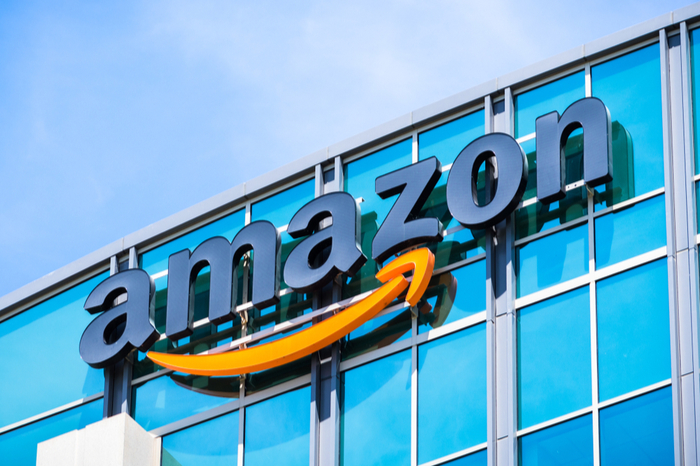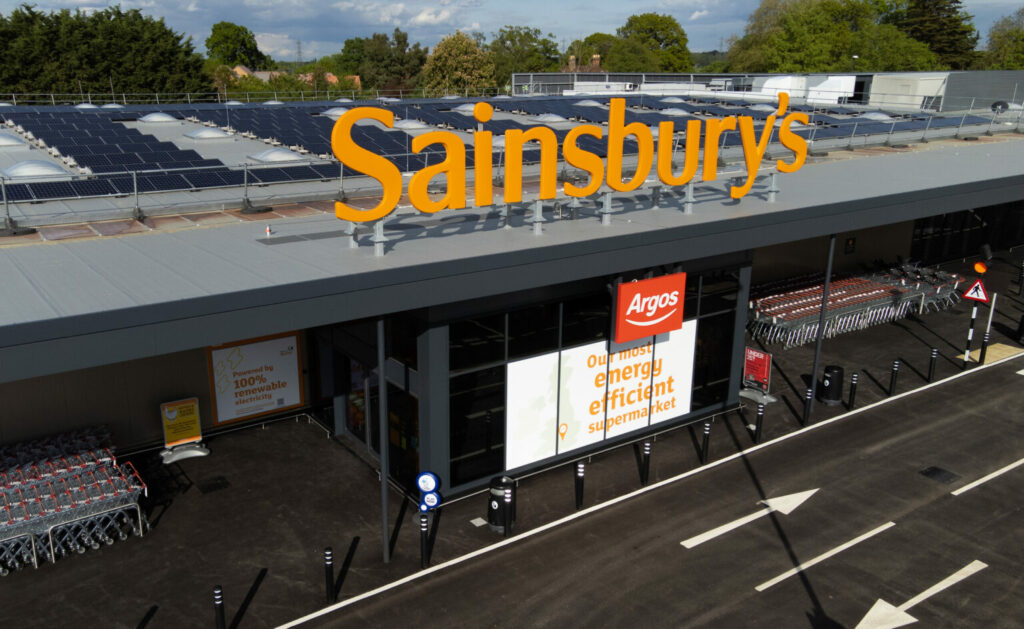Three weeks ago, the UK’s grocery sector was taken by surprise when online giant Amazon revealed plans to offer free grocery deliveries to Prime members across the UK by the end of the year.
The Big 4 grocers, Tesco, Sainsbury’s Asda and Morrisons, currently do not offer free delivery on online orders, and in some ways, Amazon’s announcement threatens their efforts to profit from the pandemic-induced boom in online shopping.
Amazon said customers can buy cheese, baked goods, fresh meat, fruit and vegetables with no delivery fee if they subscribe to its £7.99 per month Prime service. The project also involves upgrading nine existing Amazon depots in the UK in an effort to better handle fresh groceries. The first depot to be refitted is located in London, and the next one will be in Leeds.

The UK’s grocery sector saw an overall increase in sales when the Covid-19 pandemic struck, with consumers spending an extra £467 million, according to Nielsen. The report came the wave of stockpiling amid fears of supplies running out due to the coronavirus outbreak. But as cases continued to increase in the UK, shoppers increasingly shifted online to get their grocery shopping done.
On Tuesday, it became clearer as to how much consumers preferred to shop for groceries online even as lockdown began to ease, with online grocery sales skyrocketing 117 per cent over the past month, achieving a record market share of 14 per cent.
When Jeff Bezos founded Amazon in 1994, the retail giant started off as an online marketplace to sell books, which eventually led to the birth of the Kindle in 2007. Amazon has since grown exponentially, branching out to other areas of online retail and even cloud technology. In many ways, Amazon’s expansion to everyday grocery items was an unforeseen venture back in the 1990s.

However, Paul Kirkland, business development director at Fujitsu said Amazon had set its sights firmly on the high street since day one. Indeed, Amazon has made no secret of the fact it has been trying to take on the grocery sector. It launched its Amazon Fresh service in the UK in 2016, shortly after it bought upmarket grocery chain Whole Foods in a £10.7 billion deal, and in the US it has started to roll out its cashier-less convenience store concept known as Amazon Go.
“From the launch of its cashless Amazon Go stores earlier this year to, more recently, offering free delivery of groceries in London, Amazon has pivoted and evolved in line with consumer demand to maintain its position as an industry behemoth,” Kirkland said.
“During lockdown, a lot of retailers – supermarkets included – struggled to adapt in the same way, which meant Amazon was able to cash in on the new surge in demand left behind.”
He added that although supermarkets also offer a delivery service, Amazon’s Prime membership provides one that can often much quicker. Despite this, the grocers’ delivery services are seemingly sufficient for their loyal customers – especially considering Tesco, Sainsbury’s and Asda have been offering deliveries since the early 1990s.
However, most grocers are still offering these services at an extra charge.
Tesco charges £4 if the basket value is under its £40 minimum, while Sainsbury’s charges £7 if basket value is under £40. Asda charges the least at just £3 for orders under £40. To compare, Amazon’s Prime service will allow customers to make free deliveries at no minimum price.

According to Amazon UK, customers can access “unlimited one-day delivery to UK addresses on millions of eligible items at no extra cost”.
Chris Cooper, planning director at ecommerce agency Melody, said that while Prime was a well-recognised offer, Amazon would face challenges on how it will hone its food offering over the coming years.
“If it becomes a marketplace, we could see many SME artisan food brands able to sell on Amazon and reach millions of new customers,” he said.
“But it will need to invest in its logistics chain, as a delivery driver in a basic van or car can’t deliver chilled foods.
“Amazon’s big selling point is convenience. If it can master next-day or even same-day delivery for food across the UK, which no other big grocer can currently offer, it will have a big advantage.”
“The current order online and home delivery model of UK grocers is not profitable”
Kirkland argued that there was often limited choice given Amazon only stocks specific brands and those products are not always available.
Evidently, Tesco felt the heat of the competition after announcing over the weekend that it would add free delivery to its Clubcard Plus loyalty scheme – which costs £7.99 per month.
Tesco is the leader of the Big 4 in terms of UK grocery market share, which stands at 26.6 per cent as of August 9, according to Kantar.
Chief executive Dave Lewis told The Sunday Telegraph that Tesco would have to “think about how it puts delivery into Clubcard Plus” as it takes on Amazon.
However, Nottingham Business School retail research associate Nelson Blackley said a major concern for UK grocers is that the current order online and home delivery model is not profitable, and that they are aware of Amazon’s access to vast amounts of capital.
“Amazon is prepared to tolerate low margins for long periods in order to win market share,” Blackley told Retail Gazette.
“Tesco increased its delivery slots from just over 600,000 a week to 1.4 million since the coronavirus pandemic began – but costs have also rocketed as a result.
“They have, like others, all had to invest in systems and technology, as well as labour, to quickly scale their online sales.
“So this huge ramp-up in online sales has been dilutive of profits for them and all the major UK grocery multiples.”
He added that since Walmart announced it was looking to offload Asda, it has resulted in a lot of speculation about a potential Amazon acquisition.
“The past five months and lockdown have changed the outlook completely as the online share of UK grocery has almost doubled and so appears to be a much more attractive online opportunity for Amazon,” Blackley explained.
“In addition, the disruption because of the Ocado switch from delivering Waitrose products to Marks & Spencer products which starts at the end of this month, might also be seen by Amazon as an opportunity to move in and grab market share.”
Tesco’s plans to introduce free delivery could potential push other grocers to compete on delivery, speed and price. And to capitalise on their store estate advantages, grocers may also add incentives for click-and-collect.
While a free delivery offer is an incentive to retain customers, other factors such as inventory, product choice, and customer service are what will retain customers for the long term.
To keep hold of market share and positioning, grocers may need to start relying more on brand loyalty. This means having more consistent branding, clean product data, and improved customer service.
Click here to sign up to Retail Gazette‘s free daily email newsletter

















